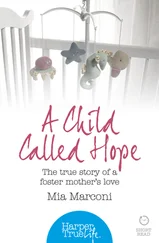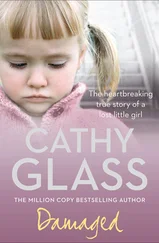«Grow up soon, my little boy,» my husband tells him with deep affection. «We will go fishing together.»
I find it really funny. I try to imagine our baby with a fishing rod in his hands, but without success. I cannot even imagine the day when he will take his first steps or hold something in his hands, it all seems so far off. It is hard to believe that this day will ever come, because my life has turned into a never-ending cycle of changing nappies, feeding, washing, of sleepless nights when the baby cries. I begin to think that this will never end…
However, here’s living proof that time flies running around, it’s my six-year-old daughter Masha. The first month after her birth seemed endless, and even brought me to the blasphemous thought that flashed across my brain, still in flames after a breast surgery: do I really need all of this?
I came from a large town to the village where my mother-in-law lived, and planned to go into labor there. My mother had died two years previously, and I was terribly afraid to stay on my own, without support, as I had no other close relatives. The village maternity hospital had an excellent reputation, even among women from the city. It was a place where women came to give birth if they had the right connections, because at this time, generally speaking, pregnant women could end up lying in corridors because there were not enough beds in the wards, and no baby left the hospital without staph infections.
The stories about things that could happen to you in hospital were worse than anything you could see in a horror movie; babies got neglected and fell onto the floor, and women about to give birth had no help, so they had to deal with everything themselves, apart from cutting the umbilical cord. The nurses insulted women telling them the pain was the result of sexual pleasures and promiscuity. The poor women and newborns were treated so badly that it truly chills the soul.
My daughter was born as tiny as my son, less than three kilograms. I was lucky; a relative of my husband was on duty that night, and she was an experienced midwife, so everything went more or less smoothly. I wasn’t sure if I had milk or not, but I produced enough and the child went to sleep.
The girl and I were brought home with triumph. It was decided we would stay with my mother-in-law while my husband was renovating our city apartment. All my knowledge about nursing and raising a child under one year of age was based on articles from «Working Woman» and «Health» magazines. Also, there was an old book titled «How to Nurse a Baby», which according to the year of its publication had been a present to my mother when I was born.
I tried to study that book, too, because I had nothing else to rely on. I remember the book said that before nursing her baby a mother should sterilize her breasts, put on a headscarf and a face mask (why not wear a gas mask as well!). She should sit on a special chair and put her feet on a special bench. After that the nanny (what?) would hand the baby over to her. The mother was to nurse the baby for twenty minutes, not a second longer. The baby should be fed strictly every three hours, and at night there was to be a six-hour break, and if the baby woke up, it should be given water to drink.
All the misfortunes I had to go through in the first few weeks after the birth of my daughter could have been avoided if I had paid less attention to the recommendations of our well-intended pediatricians. Up until this day I shudder recalling this episode of the so-called horror film «My First Child and the Experiment of Raising Her.»
It was late at night. My little girl was spinning around in bed about to wake up. I realized that we would get no sleep till dawn. My mind told me to wake up, but my body said, «Leave me alone.» The sultry August night was oozing through the open window, pressing my head down to the damp pillow. I didn’t have the energy to move, and it seemed as if someone had gently whispered in my ear, «Don’t get up… don’t get up… she will cry for some time and then go back to sleep.»
A few minutes later, when I frantically tried to snatch some sleep, my daughter’s screaming hit me like an electric shock, and I shook as if I had touched a bare wire. I crawled out of bed half asleep, and fumbled for the switch on the bedside lamp… Oh my God, was this going to go on for months? How would I cope?
My mother-in-law woken by the noise came into the room.
«Oh well… be a mother, my dear, act like one!»
After coming out with this strange phrase she walked away majestically. I stared at her back as she left indifferently, expressing utter contempt for my abilities as a mother. Tears started boiling up somewhere deep within my soul, building up and erupting into a silent tantrum. I tried to swallow my screams so as not to wake my husband who had to catch the train to work early in the morning. I still don’t understand why the woman who had raised two children didn’t simply tell me that babies needed their milk at night as well.
My tiny daughter screamed her lungs out, and I was in tears, sitting next to her with my breasts swollen with milk, trying to pour water into her mouth with a spoon. That’s what I had been told to do! More trouble was on the way.
We had managed to leave the hospital without catching any staph infection, but still the baby picked up Candidiasis, which evidenced itself as an ugly foaming within her mouth. My breasts got this infection from her, and there was acute inflammation. To put it simply, I got mastitis. My temperature rose up to forty degrees Centigrade, and I could not nurse the baby. The verdict from the doctor was unambiguous, «We need to operate as soon as possible!»
I do not remember how I was taken to hospital, but I remember it too well how, after the surgery, I was walking through the whole village quietly whimpering because my breasts were sliced apart. I came up to the porch to see a basin with diapers soaking. I sat down for five minutes, then stood up and started washing them by hand.
After that I could not nurse my daughter normally. The whole feeding process had been disrupted and never recovered. I fought for around five months and then bought the only baby formula there was in the shop.
Not more than six years have passed since my daughter’s birth, but the medical recommendations on raising children have changed dramatically. Bearing in mind that any way you look at it books are still the best source of information, I have already read up on this topic, and the new knowledge has made me change my idea of the correct approach to nursing. The first visit by my local doctor confirms my suspicions.
«He’s so tiny,» the doctor says carefully removing my son’s diapers. «Do you have milk?»
«Yes, I think so,» I say remembering my experience in the maternity ward.
«Feed him any time he demands it. He is very underweight, and he needs to put on one kilogram a month.»
«Even if it has been no more than half an hour after the previous feeding?»
I could not believe my ears.
«Yes of course, but if you have enough milk, the breaks won’t be so short.»
Encouraged by this professional support, I start my daily routine with enthusiasm hoping that now everything will be just fine. No chance! My little son gets the message very quickly, and after a few days of this regime he simply refuses to leave his rightful place next to my breasts. As soon as I put the baby down – he seems to be well-fed and sleeping, he has been chewing my nipples for an hour and a half instead of the 20 minutes recommended by the Soviet pediatricians, – and quietly try to leave the room to get on with my housework, I would hear a demanding cry. There is only one way to interpret the cry: the baby is hungry, he needs his milk.
Читать дальше












